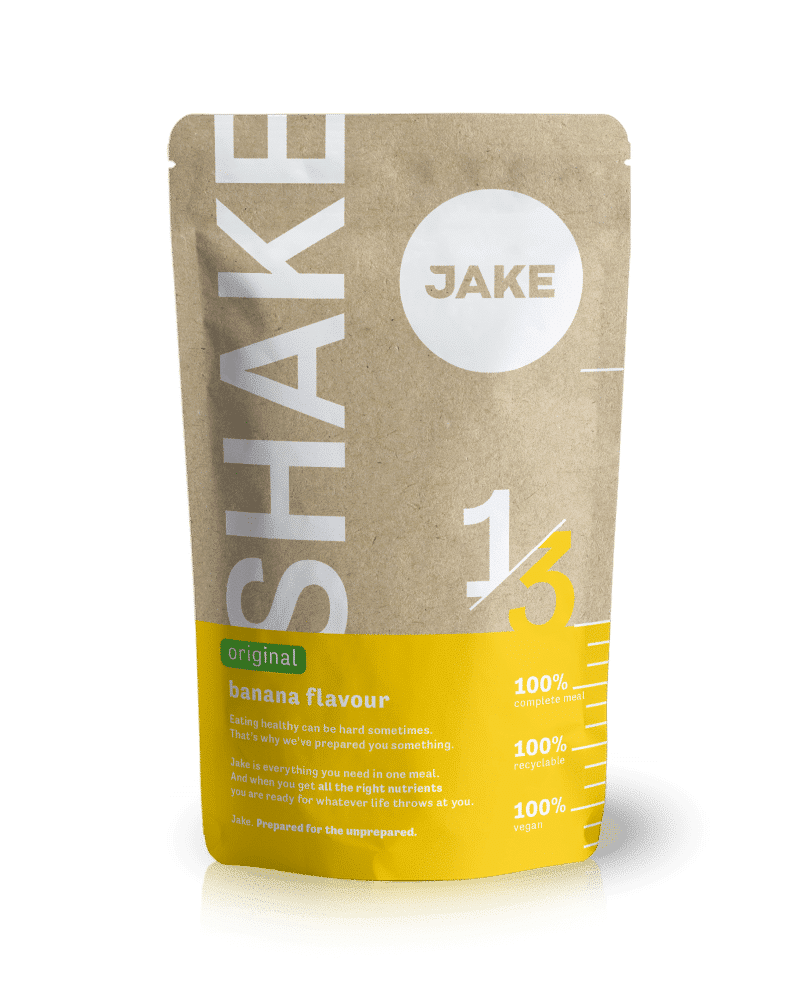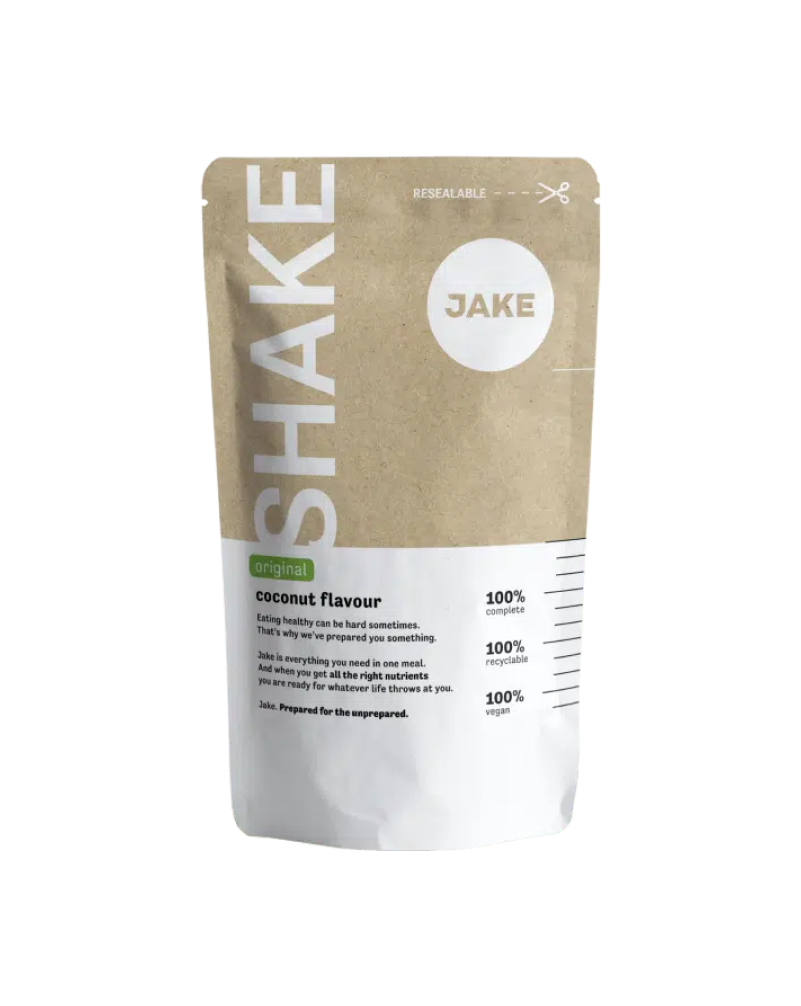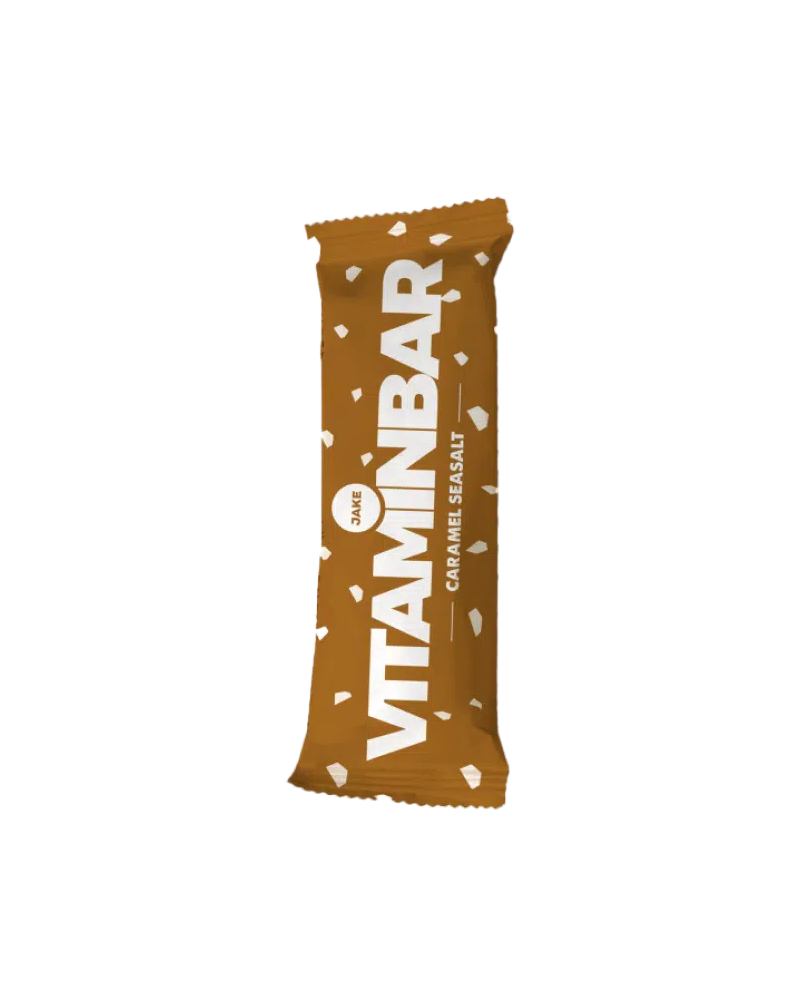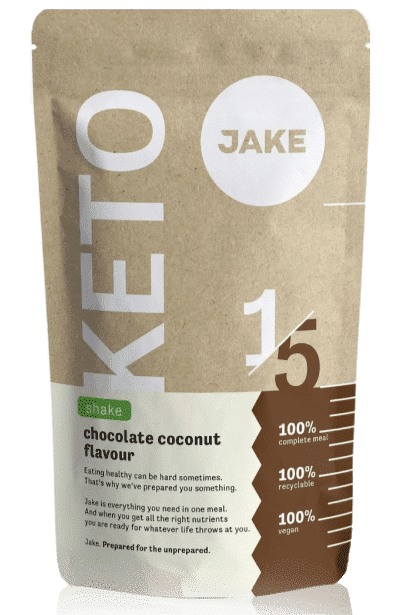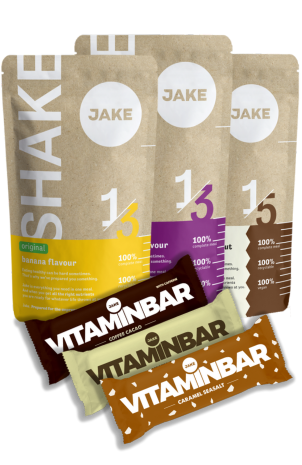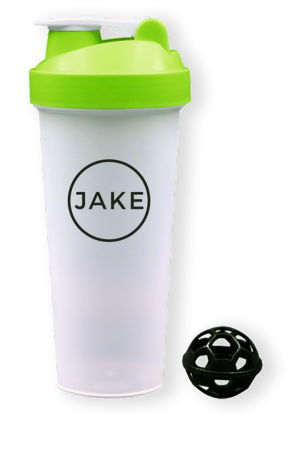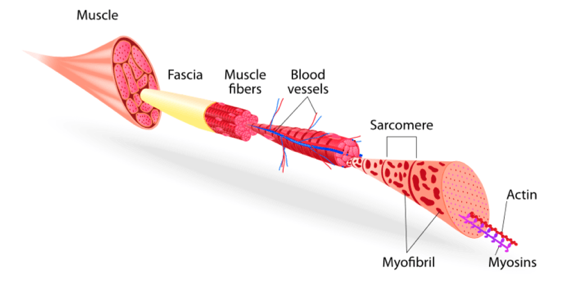7-minute read•March 11th, 2019
It’s the morning after a tough workout. You wake up with a mixture of pride and pain in those proverbial muscles you didn’t even know you had. But the pain is worth it, because it means you’re building more muscle. Right? Actually, not exactly right. There are many misconceptions out there about muscle growth. To know what to believe and what to ignore, it’s important to understand the basics. What’s muscle made of? How does it grow? And, what stimulates that process? I’ll try to give a simple answer to these questions here.
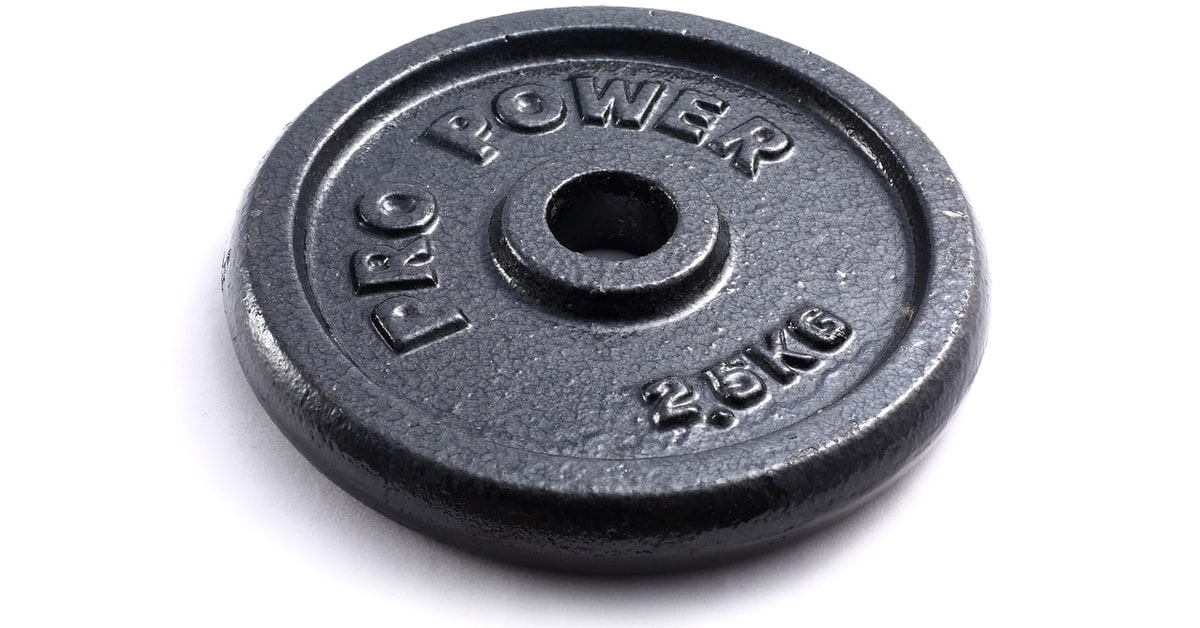
What are muscles made of?
When we talk about muscles, we’re usually referring to skeletal muscle. There are two other types of muscle in your body – your heart and the smooth muscles in your internal organs. Whereas the hearts of endurance athletes can grow in sizeSource: Wikipedia, having a big heart is probably not your motivation to work out.
Your skeletal muscles are made up of connective tissue and muscle fibers, of which there are two major types: slow-twitchSlow-twitch muscle fibers, or ‘type I muscle fibers’ are suited for endurance exercises such as long-distance running. and fast-twitchFast-twitch muscle fibers, or ‘type II muscle fibers’, are suited for quick and powerful bursts of movement, such as sprinting. Their disadvantage is that they fatigue quickly.. They differ from each other in the way they produce energy, as well as their capacity for endurance and strength. Both types of muscle fibers are made up of myofibrils, whose basic building blocks are proteins.
Combined with the fact that skeletal muscles make up around 40% of a healthy body’s total massA healthy adult female body is made up of 36% skeletal muscle mass on average. For adult men, this percentage is 42%. , this makes them the largest reservoir of proteins in your body. Also, one of the largest centers of energy consumption.
Muscle maintenance: Use it or lose it
Muscles require a lot of energy to maintain. Since your body is always focused on energy efficiency, it will start getting rid of muscle mass you’re not actively using. This process of losing muscle mass works very quicklySource: Forbes when you become less physically active than usual. Extreme cases of physical inactivity, such as going on a space mission in zero gravity, can cost you as much as 20% of your muscle massSource: Canadian Space Agency. Assuming you’re not about to launch into space, maintaining your muscle mass shouldn’t require much more than sticking to a consistent level of physical activity.
But how do you get from maintaining muscle to gaining muscle?
How do muscles grow?
When you strain your muscles, such as during intensive resistance training, it causes microscopic damage to your muscle fibers and breaks down the proteins they’re made of. Your body responds to this by activating the satellite cells located just outside your muscle fibers. Satellite cells attach themselves to the damaged muscle fibers, contribute additional nuclei to them and enable the synthesis of new muscle protein.
To keep a very complex story simple, the key to muscle growth lies in getting your body to synthesise more muscle protein than it breaks down. The main prerequisite for this is progressive overload. In other words, you need to consistently demonstrate to your body that your current muscles can’t handle the physical demands of your lifestyle. You do that by means of increasingly intense workouts that cause consistent muscle damage. Mind you, muscle damage is not the same as muscle soreness. Even though it seems logical that no pain means no gain, research shows that muscle growth isn’t directly related to the presence of muscle sorenessSource: The Journal of Experimental Biology.
Muscle gain and nutrition
Although it’s absolutely necessary, progressive overload isn’t sufficient to trigger muscle gain. In order to stimulate sufficient muscle protein synthesis to repair and increase your muscles, nutrition is just as important.
First, I want to clarify that muscle growth would be out of the question unless you’re in a positive energy balance. That means that you’re consuming more energy than you’re burning. And having made this clear, just adding calories to your diet isn’t going to cut it. Diet composition is very important, especially because your body is in recovery for 24-48 hours after a workout. Anything you eat during that time directly impacts the process of muscle synthesis and muscle growth. And some nutrients are more helpful than others.
- Protein
How much protein do you need to ensure muscle growth? Honestly, we don’t know. And beyond this, the only honest answer to how much protein it takes to build muscle is: “It depends”. Some studies suggest that protein intakes of 1.6g/kg of body weight might already be sufficientSource: The British Journal of Sports Medicine for muscle protein synthesis to peak, making additional intakes unnecessary. Other studies demonstrate that certain athletes require up to 3.1g protein/ kg of fat-free massSource: International Journal of Sport Nutrition and Exercise Metabolilsm to maintain and gain muscle. In any case, it’s a misconception that the more protein you consume, the more muscle you will build. You’ll need to play around a bit with your protein intake in order to find what works for you, but don’t overdo it.
When it comes to the timing of your protein intake, both pre-workout and post-workout intakes are beneficial for muscle protein synthesis. However, if you’re going to get some protein after your workout, keep in mind that the positive effect diminishes the longer you delay your meal. Recent studies also suggest that eating at least 40g protein immediately before you go to bed can intensify post-workout muscle protein synthesisSource: Nutrients Journal.
- Carbs
If you want to build muscle, you need to gradually increase the intensity of your workouts. And high-intensity workouts come with specific energy needs. When you’re engaging in intensive physical activity, the primary source of energy for your muscles are their glycogen stores. When you eat carbohydrates, they’re either directly used as energy or stored as glycogen or fat. Glycogen can only be stored in the liver and in muscles, with limited capacity, which can only be efficiently replenished by eating carbs. Fatty acids, which can serve as alternative fuel for your muscles, take too long to transform into usable energy, which makes them unsuitable for a high-intensity workout. If your carb intake is very low, this can have another disadvantage as well: low-carb diets decrease the overall post-workout protein synthesisSource: Journal of Applied Physiology in your body, including muscle protein synthesis. In other words, unless you want to make muscle gain more difficult for yourself, keep carbs in your diet.
To create optimal conditions for muscle growth after a workout, a carb-containing meal with a high glycaemic indexGI, or glycaemic index, is a value assigned to carb-containing foods on the basis of how quickly and how much they raise blood sugar levels, compared to pure glucose. A GI value under 55 is considered low, between 56 and 69 – medium, and over 70 – high. combined with some protein seems to work bestSource: Journal of Sports Science and Medicine, especially if consumed within the first two hours after a workout.
Carbohydrates help restore normal muscle function (contraction) after very intense and / or prolonged exercise that has led to muscle fatigue and depletion of glycogen stores in skeletal muscles.
Afraid to miss out on essential nutrients your body needs? You can always take our Jake meal replacement shakes or one of our delicious meal replacement bars.
The importance of sleep
Let’s say you have the right workout routine and the right diet to optimize muscle growth. Is that enough? Almost. The process of protein synthesis is regulated by a variety of hormones, including but not limited to testosterone, cortisol, growth hormone and insulin. If the production of any of these hormones is disrupted, this would reflect on protein synthesis and could negatively impact muscle growth.
There are several factors that can impact hormone production, including age, gender, specific diseases, genetics or stress. You can’t influence all of these factors, but one that you can is getting enough sleep. Sleep deprivation can have a negative impact on insulin, cortisol and growth hormone production. It can also prevent the muscle glycogen stores from fully replenishing.
The bottom line on muscle gain
To put everything together, the most important factors for muscle gain are:
- Progressive overload – in other words, demanding increasingly more from your muscles;
- Getting enough calories, including protein and carbs to ensure optimal muscle protein synthesis;
- Sleeping enough to keep your hormones happy;
- Not worrying about muscle soreness, as it’s not a reliable sign of muscle growth.
